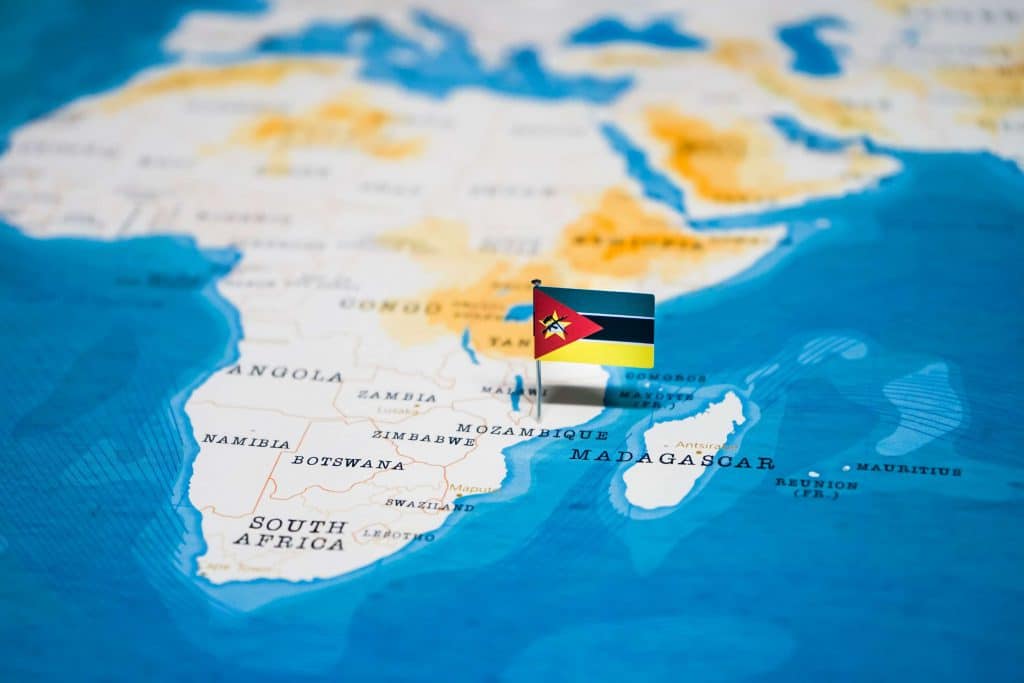For three months now, many Mozambicans have been trapped in the northern province of Cabo Delgado. Since the militant attack on the important port city of Palma by Al-Shabaab on 24 March, which killed dozens, people have been stuck, without food with a constant threat of danger around them. Near Palma is Africa's second-largest lng conversion plant owned by French oil company Total. Since then, 20,000 people set up near the company's fences camp. The Netherlands also has a link to this province. Through export credit insurer Atradius DSB insures Netherlands billions of euros Of a Dutch company participating in gas extraction projects in Mozambique.
'The young' behind the attack
Although the jihadists are called Al-Shabaab - meaning youth in Arabic - there appears to be no link to Al-Shabaab in Somalia. The group is also said to have sworn allegiance to Islamic State (IS), but this link is also unclear. IS did claim the Palma attack. What is clear is that the violence is getting worse. Already more than 670,000 people have fled their homes, not only in Cabo Delgado, but also in Niassa and Nampula provinces. Amnesty International stated that Al-Shabaab is deliberately killing civilians, looting and burning homes. The jihadists claim at the same time stand up for the local population, which benefits very little from gas revenues.
Gas extraction that no one sees anything of
In 2010, one of the largest ever gas bubbles was found off the coast of northern Mozambique. Since Total arrived in Cabo Delgado last year, Palma seemed to have the potential to become a vibrant centre, but nothing could be further from the truth. Locals benefit almost nothing from gas extraction. Total came to Mozambique for its US$20 billion lng (liquefied natural gas) project. The project, expected to be completed by 2024, was almost officially underway when Al-Shabaab attacked Palma on March 24.
Total staff were evacuated and Total eventually declared the project a 'force majeure' at the end of April and The company hopes that "the actions taken by the government of Mozambique and its regional and international partners will enable a sustainable restoration of security and stability in Cabo Delgado province". Put more simply; they are withdrawing completely despite the many lives lost and the thousands of people who have set up camp on the doorstep out of desperation.
And Total can do that, because declaring 'force majeure' means the company can now get out from under contractual agreements with the government and suppliers. Total is clearly not taking any responsibility, nor do they seem willing to provide assistance themselves.
Humanitarian crisis with a Dutch touch
Some 60,000 people have fled Palma since the attack in March, many ending up in Pemba, the regional capital. But what should have been a cost-free rescue through army-facilitated emergency flights is not guaranteed for many. In desperation, people are buying a place for themselves and their children on emergency flights, which should really be free. Amnesty International reported in a case that prioritised the safety of white hotel managers and contractors over the local black population. During the attack, people were cold-bloodedly murdered and, according to eyewitnesses, bodies were strewn through the streets.
The attack on the town of Palma caused thousands of people to flee. But even now, the situation has not improved very much. Mozambique's government has sealed off the region, leaving the population trapped in their own environment. Communication with survivors is also difficult, as telephone poles were blown up during the attack and journalists are barely allowed into the region.
Even the Dutch government does not remain infallible on the issue. The government has assigned €900 million export credit insurance through export credit insurer Atradius DSB to dredging company van Oord, which was carrying out work for the Total lng project. That the Dutch government is investing in fossil industry projects abroad is contrary to the Paris Climate Goals. While here in Europe there is constant talk of greening and sustainability, the story in Africa is the opposite. Africa is already struggling enough with the effects of climate change - much of which has been caused by industrially prosperous countries - that full commitment to a fossil industry in Africa is counterproductive. As Isabelle Geuskens of Environmental Defence said: "The whole world is moving to renewable energy, so Mozambique would benefit a lot more from renewable energy projects. There is huge potential for this, but this is not getting off the ground partly because of fossil investments." The current fossil investment projects do not benefit the local population, the (monetary) proceeds of which actually seem to promote violence in Cabo Delgado.
What could have been one of the largest and most successful enterprises has turned into a disaster. Instead of creating jobs and reviving the port city, much of the population actually had to pack up their belongings to make way for Total. Not to mention the billions of invested euros and dollars now washed away. Ultimately resulting in a humanitarian crisis that has left the people of Mozambique with a mountain of havoc and misery.





